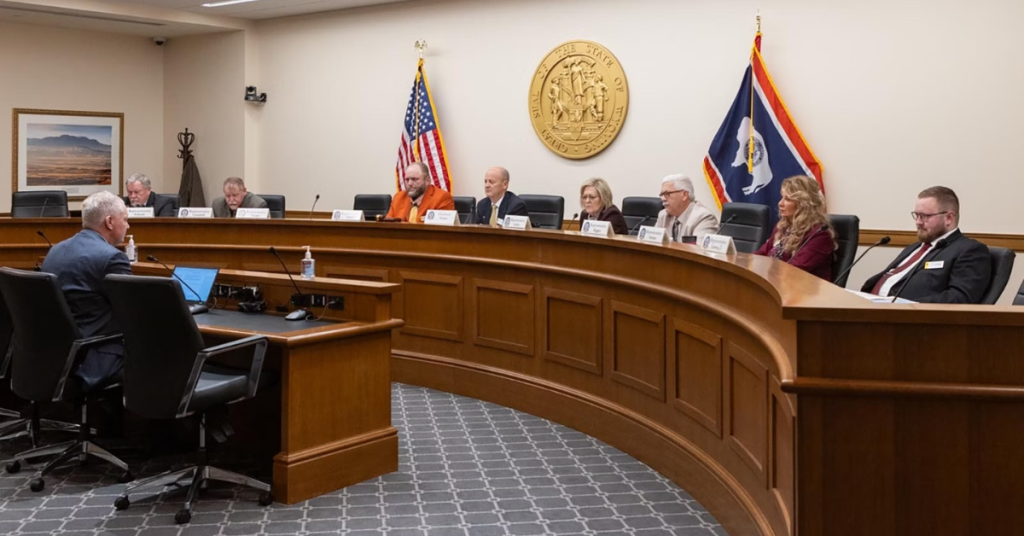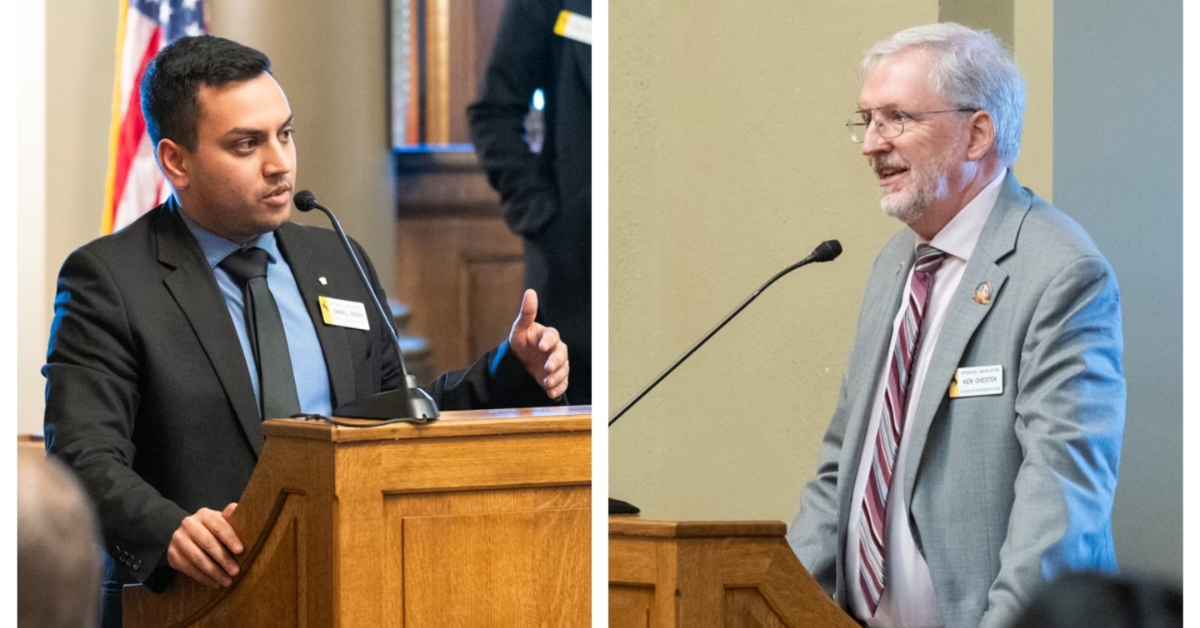On Monday, a major political topic in Wyoming was up for debate in the House of Representatives: the issue of private property rights and the federal government’s role in buying land. The discussion centered around House Bill 118, a new proposal that would limit the sale of private property in Wyoming to the federal government unless the government also reduces its federal land holdings by an equal amount.
The bill, if passed, would create new hurdles for those wanting to sell their property for recreational purposes or to the government for other reasons. The idea behind the bill is to stop the federal government from expanding its land holdings in Wyoming, which has been a point of concern for some property owners and lawmakers. The main purpose of HB 118 is to curb the growth of federal land in the state, an issue that has been a heated topic for a long time.
Rep. Dalton Banks, R-Cowley, who sponsors the bill, stated that just because the federal government has been acquiring land in Wyoming since the state became part of the United States doesn’t mean it should continue. He argued that the bill would protect private property owners from excessive federal control and government overreach. Banks explained, “We’re not limiting who you can sell to, we are limiting the federal government under our Constitutional responsibility.”
On the other hand, Rep. Karlee Provenza, D-Laramie, proposed an amendment to the bill that would have removed the limitation on private property owners’ rights to sell their land, but it still would have required the federal government to match any land purchases with corresponding reductions in federal land.
However, the amendment was rejected by a 34-25 vote. Provenza expressed concern that the bill could prevent private landowners from getting the best price for their land. “This limits just compensation,” she said, adding that private property owners should be able to sell their land to whoever is willing to pay for it.
The debate came amid recent examples of land sales in Wyoming that have drawn criticism. One such sale was the transfer of 640 acres of pristine state land in Teton County to the National Park Service. The sale was worth $100 million, and the land was added to Grand Teton National Park. Another controversial sale was the 2023 transaction of the 35,670-acre Marton Ranch in Natrona County, which was sold to the Bureau of Land Management (BLM) for $21 million.

Rep. Steve Harshman, R-Casper, emphasized that property owners have the right to sell their land as they see fit. “To infringe on private property rights, it gives me pause,” he said, referring to the Marton sale. Jess Johnson, from the Wyoming Wildlife Federation, defended the sale, explaining that such land transfers could be beneficial for public access and agricultural interests.
Some lawmakers, like Rep. Tony Locke, R-Casper, viewed the issue as one of protecting Wyoming’s sovereignty. Locke and Rep. Tom Kelly, R-Sheridan, argued that the federal government might pressure landowners to sell, which could be harmful to the state’s interests.
Others, however, saw the bill as unnecessary interference with property rights. Rep. Mike Yin, D-Jackson, described it as “babysitting,” while Rep. Cody Wylie, R-Rock Springs, called it a decision that wasn’t needed.
Several lawmakers expressed support for private property rights, stating that individuals should have the freedom to decide what to do with their land. Rep. J.T. Larson, R-Rock Springs, put it simply: “I believe every individual has the right to develop his potential, to use and enjoy his own property.”
Rhetoric against the federal government was strong among those supporting the bill. Some lawmakers went as far as comparing the government’s actions to those of an adversarial foreign nation. Rep. Reuben Tarver, R-Gillette, voiced this sentiment by suggesting that the federal government might not always have Wyoming’s best interests at heart.
Rep. Rob Geringer, R-Cheyenne, brought up an example of a contaminated piece of land owned by the city of Cheyenne. He suggested that such land might be better off in federal hands to aid in its cleanup. However, other lawmakers, like Rep. John Bear, R-Gillette, pointed out that federal purchases are funded by taxpayer money, and they felt it was unfair to limit private citizens’ ability to sell their land to the federal government.
The constitutional arguments surrounding the bill were also significant. Both the Wyoming and U.S. constitutions protect private property rights and guarantee that property cannot be taken without just compensation. Some lawmakers, like Rep. Ken Pedergraft, R-Sheridan, argued that the federal government has already exceeded its constitutional right to purchase land. “At some point we the people need to stand up,” Pedergraft said.
As the bill moves forward, it remains to be seen whether it will pass through the House and Senate. For now, it has sparked a critical debate about the balance between private property rights and the expansion of federal land ownership in Wyoming.
Disclaimer: This article has been meticulously fact-checked by our team to ensure accuracy and uphold transparency. We strive to deliver trustworthy and dependable content to our readers.

